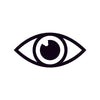You hear your younger son Johnny come home one day and says: “Mum, I can’t see the board at school”.
And surely two things will come into mind –
1. Your kid is bluffing and he just wants to get glasses because his best friend just got a pair
2. He really can’t see. After some tell-tale signs (squinting, leaning forward to see amongst a few), you take him to see the optometrist and sure enough he’s short-sighted and Johnny wasn’t bluffing afterall. So that’s great news, right? We can make him see better!
Blog
Short-Sightedness In Children
Short-Sightedness In Children
It’s fantastic news for Johnny and for the optometrist. Knowing that short-sightedness in children can be easily corrected by a simple pair of prescription glasses and there was nothing more sinister contributing to it. However, that’s when the parental anxiety begins because you know that when you had glasses when you were 12, the prescription kept changing.
After years of research into this field, there are certainly some techniques and tricks up our sleeves that can slow down this progression. There is no guarantee that any of the methods will cease progression completely, however statistically speaking, taking some action is better than none.
Progressive spectacles lenses, multifocal contact lenses or hard contact lenses that you’d wear to sleep are just some methods that may help your child under the correct circumstances as determined by your optometrist. Low dose atropine drops have shown great promise though the drop itself in its low dosage is not commercially available and not all optometrists are therapeutically endorsed to prescribe the drop.
Interestingly, a product that is widely available to everyone is sunlight! Recent studies have shown spending at least 1-2 hours outdoors per day will have a dramatic impact on slowing down the progression of short-sightedness1,2. It is by no means reversing the short-sightedness back to what it was, and yes – your child will still need to wear the glasses/contact lenses prescribed.
Now, before you say: “What about the tablets and computers? I’m trying to get Johnny off the tablet.” Well, when was the last time you saw him playing the tablet out in the sun?
References:
- He. M, Xiang. F, Zeng.Y et al Effect of Time Spent Outdoors at School on the Development of Myopia Among Children in China. JAMA. 2015;314(11):1142-1148
-
Read. S, Collins. M, Vincent. S Light Exposure and Eye Growth in Childhood Investigative Ophthalmology & Visual Science October 2015, Vol.56, 6779-6787
By Alvin L.
Optometrist at 1001 Optical
Need an eye test? BOOK NOW
It’s fantastic news for Johnny and for the optometrist. Knowing that short-sightedness in children can be easily corrected by a simple pair of prescription glasses and there was nothing more sinister contributing to it. However, that’s when the parental anxiety begins because you know that when you had glasses when you were 12, the prescription kept changing.
After years of research into this field, there are certainly some techniques and tricks up our sleeves that can slow down this progression. There is no guarantee that any of the methods will cease progression completely, however statistically speaking, taking some action is better than none.
Progressive spectacles lenses, multifocal contact lenses or hard contact lenses that you’d wear to sleep are just some methods that may help your child under the correct circumstances as determined by your optometrist. Low dose atropine drops have shown great promise though the drop itself in its low dosage is not commercially available and not all optometrists are therapeutically endorsed to prescribe the drop.
Interestingly, a product that is widely available to everyone is sunlight! Recent studies have shown spending at least 1-2 hours outdoors per day will have a dramatic impact on slowing down the progression of short-sightedness1,2. It is by no means reversing the short-sightedness back to what it was, and yes – your child will still need to wear the glasses/contact lenses prescribed.
Now, before you say: “What about the tablets and computers? I’m trying to get Johnny off the tablet.” Well, when was the last time you saw him playing the tablet out in the sun?
References:
- He. M, Xiang. F, Zeng.Y et al Effect of Time Spent Outdoors at School on the Development of Myopia Among Children in China. JAMA. 2015;314(11):1142-1148
-
Read. S, Collins. M, Vincent. S Light Exposure and Eye Growth in Childhood Investigative Ophthalmology & Visual Science October 2015, Vol.56, 6779-6787
By Alvin L.
Optometrist at 1001 Optical
Need an eye test? BOOK NOW


